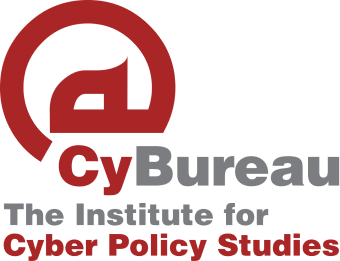Whom did Egyptian Internet users vote for?
On May 23, 2012, Egypt went to the Presidential elections, in which 13 candidates competed. Only five of them (Amr Moussa, Abdel Moneim Abu al-Futuh, Mohammed Morsi, Ahmed Shafik and Hamdeen Sabahi) had active online activity on social networks.
Examining the situation on Facebook in advance of the first round, it seemed that Abdel Moneim Abu al-Futuh was the leading candidate: his Facebook profile won 536,000 likes with several thousand likes being added every day; Amr Moussa followed suit with 505,000 likes; Hamdeen Sabahi’s page received about 450,000 likes. Behind them were Ahmed Shafik, with about 116,000 likes since his Facebook profile was set up in January 2012, and Mohammad Morsi, with mere 97,000 likes.
According to Internet users’ results, Ahmed Shafik seemed to be the big loser of the current elections: relatively meager online activity, with Facebook pages which received several thousand likes, Twitter activity, and 555 friends registered on his YouTube channel.
On the other hand, there was a Facebook page dedicated to Egyptian Prime Minister Ahmed Shafik’s awkward moments, blunders and faux pas, which received over 2,600 likes, a video with about 440 views showing shoes being thrown at him, and yet another video with a song making fun of him, which was viewed by more than 850,000 users.
The second round of the elections, which took place on June 16-17, was a competition between Ahmed Shafik, representing the old regime, and Mohammed Morsi of the Muslim Brotherhood. Based on their online activity, these two should not have won at all.
A short while prior to the publication of the official results, when each of the two candidates announced his own winning, it seemed that the online situation of the two participants changed a bit: indeed, Ahmed Shafik’s Facebook page, described as his official page, disappeared, but in two other pages he was described as Egypt’s president, with a significant increase in the number of likes. Mohammed Morsi’s profile also showed a major increase, to 173,000 likes. However, the numbers of likes of the two candidates are still far below those of their opponents, which hadn’t made it to the second round.
If we examine the penetration rate of Internet in Egypt, we will find that it has reached only 26.4%, compared with countries considered by us as arch-conservative, such as Iran and Saudi Arabia, where the penetration rate of Internet has reached 46.9% and 43.6%, respectively.
What we can learn from this is that the Internet in Egypt could not have predicted Shafik and Morsi’s ascending to the second round of these elections, and that it does not reflect their true power. In fact, this was not really a “Facebook Revolution”, as the two men’s power–and especially Morsi’s, a representative of the Muslim Brotherhood–exists among those who have no access to the Internet, who cannot “like” their leaders and are not affected by the goings-on in it.
An online view of the contestants in Egypt gives a true picture of the state of the Internet in the country, where, on average, only a quarter of the population has access to the Internet. These elections and the gap between the online activity and the true outcomes can teach us that there is still a long way to go until the Internet can become a true part of the Egyptian reality in particular and of the Middle Eastern reality in general.
The real “Facebook Revolution” is not about toppling the regime by those whose voices cannot be heard afterwards in the elections and in the government that is ruled for the time being by the military and representatives of the old regime. The true revolution will happen when the rate of penetration of the Internet in Egypt rises, when it becomes a more meaningful means of expression for those repressed groups in the population and in Arab society, and a central tool for reducing ignorance and the digital gap, and developing the human capital and the economic and social capabilities of Egypt.
This post is also available in:
עברית

